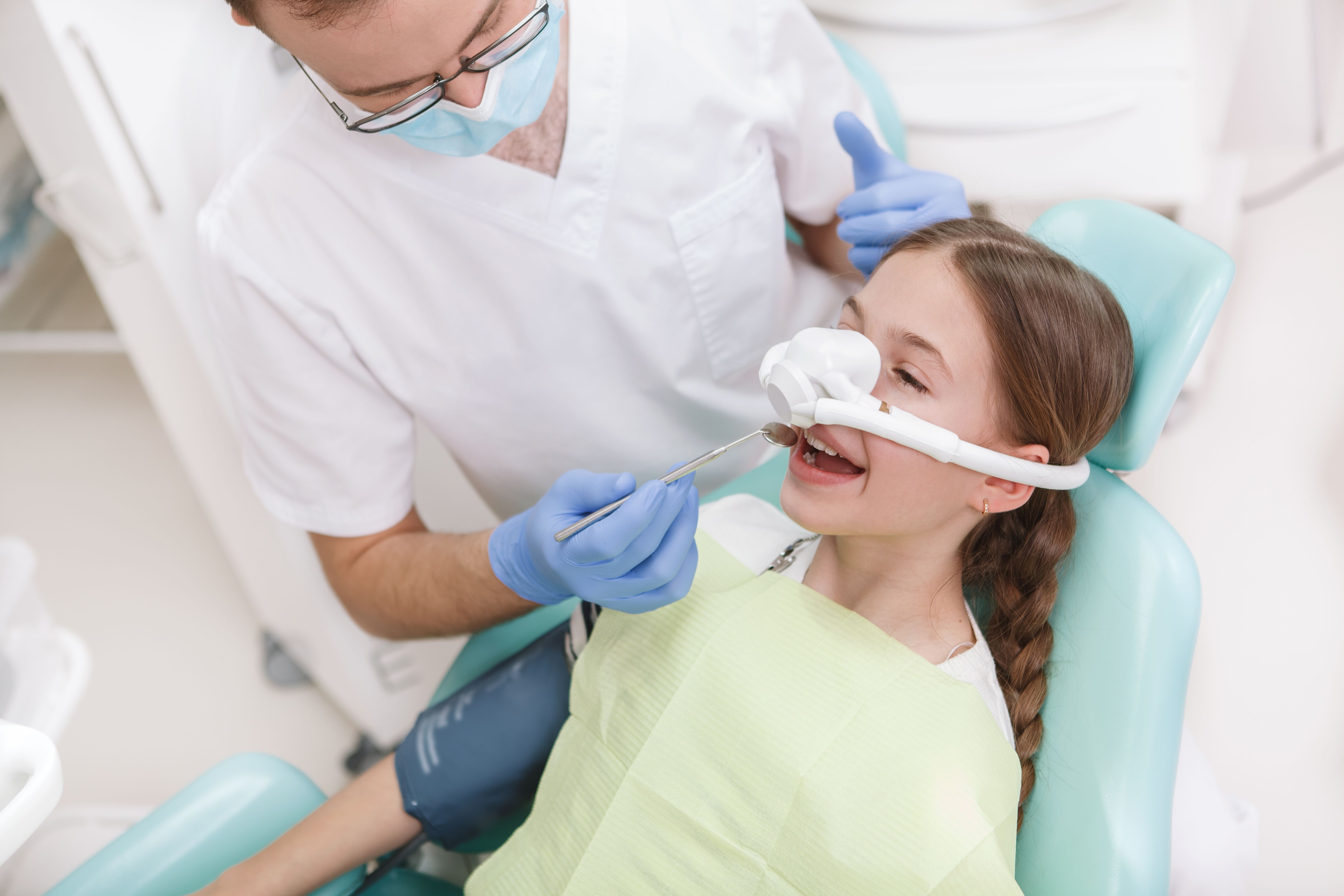
Dental care under sedation with MEOPA or general anaestehetic
Dental care without pain or anxiety
Dental care under general anaesthetic
Sometimes children are more sensitive or have a real fear of the dentist.
In such cases, we can suggest using MEOPA, a completely harmless laughing gas, to relax the child.
In other cases, when the care to be given is more complex, or when there is a mental handicap, we can also perform treatments under anaesthetic. This technique is very well tolerated by the child and is not frightening, as there is no injection. We simply put a mask on the child to put him or her to sleep. Parents can be present during the treatment.
Please note: both methods can only take place in a hospital setting. For this, you can visit Dentius KD Dental.
After waking up, the child stays in hospital for a few more hours and can go home in the afternoon. The following day, they can resume their usual activities and go to school.
We ask parents to pay close attention to their children's oral hygiene and to consult their dentist regularly.
Dental care under MEOPA
MEOPA is a gas designed to facilitate dental treatments. It is perfectly suited to patients who are excessively anxious, children or disabled patients.
With MEOPA, we work with conscious sedation during dental treatment using an equimolar mixture of nitrous oxide and oxygen: Kalinox.
This gas can help in all dental treatment situations. It is mainly used to reduce patient anxiety and to relieve apprehension and "fear of the dentist".
This anaesthetic is non-invasive, there are no needles, and is therefore not frightening for the patient.
This allows the patient to remain conscious during the operation, able to speak, but without the perception of pain. Attention: this procedure is only performed in a hospital setting.
Advantages
The gas used is a simple product, as is the method of application. There are no post-care problems. The gas is easily eliminated by the body after a few minutes, as it is not absorbed.
Thanks to MEOPA, treatment is comfortable, effective and fast, and can be carried out in complete safety. Patients can go home in around thirty minutes.
In paediatric dentistry, conscious sedation is a technique used before having to resort to general anaesthesia. It is perfectly suited to disabled or autistic patients.
We recommend that patients are accompanied by their parents or a close relative, and that they have not eaten in the two hours preceding the treatment.
This treatment is currently only available in Belgium in a hospital environment with trained dentists and assistants.
Dentius KD Dental
For dental care under anaesthesia or MEOPA, contact Dentius KD Dental.
